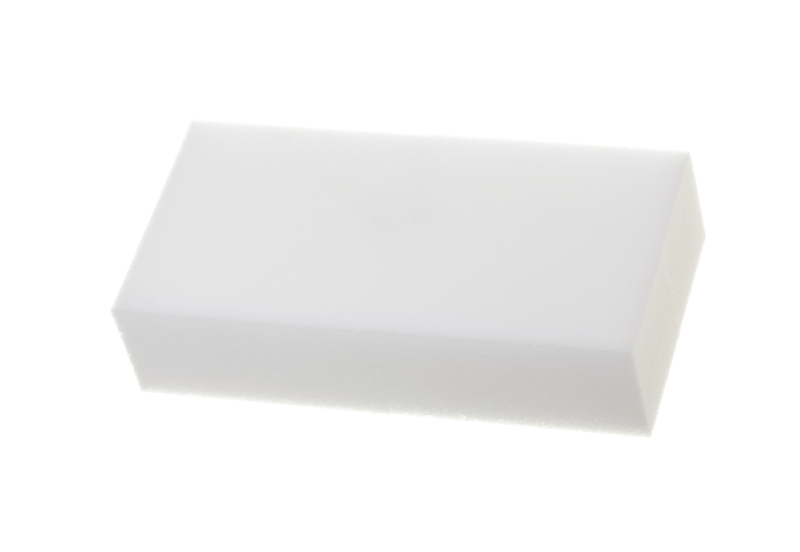Revitalize Your Jewellery with Proven Cleaning Methods
Posted on 01/10/2025
Revitalize Your Jewellery with Proven Cleaning Methods
Your cherished jewellery deserves to shine and sparkle just like the day you got it. Over time, exposure to air, skin oils, lotions, and daily wear can leave your favourite pieces looking dull and tarnished. The good news? With the right care and jewellery cleaning techniques, you can restore your treasures safely at home. In this comprehensive guide, discover time-tested cleaning methods to revitalize your jewellery and keep it looking brilliant for years to come.

Why Jewellery Gets Dirty: Understanding the Causes
Before we dive into the best cleaning methods for jewellery, it's essential to know why your pieces lose their lustre. By understanding the factors behind dull or tarnished jewellery, you can prevent damage and choose the ideal restoration techniques for each type of piece.
Common Causes of Dull Jewellery
- Oils and Lotions: Everyday substances, like hand creams, perfumes, and body oils, build up on jewellery, leaving residues behind.
- Environmental Exposure: Air pollution, humidity, and sweat can accelerate tarnishing, especially for silver jewellery.
- Cosmetic Products: Hairsprays, makeup, and sunscreen can stick to gemstones and metals, clouding their shine.
- Storage Mistakes: Keeping pieces in damp environments or mixed together can cause scratches and chemical reactions, notably among mixed-metal collections.
- Water Exposure: Minerals in tap water and harsh chemicals in pools or cleaning agents erode the finish on some delicate pieces.
Essential Tools & Products for Cleaning Jewellery
Having the right supplies on hand makes revitalizing your jewellery easier and safer. These common household products and specialized tools are highly recommended:
Must-Have Cleaning Tools
- Microfiber or lint-free cloths - Ideal for gentle polishing without scratching.
- Soft-bristled toothbrush - Perfect for dislodging dirt in delicate crevices.
- Mild dish soap - Safe for most metals and gemstones.
- Baking soda and white vinegar - Powerful combination for tarnished silver.
- Jewellery cleaning solution - Specifically formulated for precious metals and stones, widely available at jewellery stores.
- Small bowls and mesh strainer - For soaking and retrieving small items safely.
- Soft cotton gloves - Prevent fingerprints on freshly cleaned pieces.
Products to Avoid
- Bleach, acetone, or ammonia: Harsh chemicals that may damage both metal and stones.
- Toothpaste: Abrasive particles can scratch delicate finishes.
- Paper towels/tissues: Often too rough and may cause micro-scratches.
Proven Home Methods to Clean Jewellery
Restoring the shine to your jewellery doesn't always require professional services. Many safe and effective cleaning methods can be done from the comfort of your own home, using readily available items.
General Soap & Water Method -- A Gentle Universally Safe Solution
- Mix a few drops of mild dish soap with warm water.
- Soak your jewellery in the solution for 15-30 minutes.
- Use a soft-bristled brush to gently clean tight spaces and behind stones.
- Rinse thoroughly in clean lukewarm water.
- Pat dry using a lint-free cloth.
Tip: This method is ideal for gold, platinum, silver and harder gemstones like diamonds, sapphires, and rubies.
Baking Soda and Vinegar -- For Tarnished Silver Jewellery
- Place your silver piece in a bowl lined with aluminum foil.
- Sprinkle with baking soda until fully coated.
- Pour white vinegar over the jewellery -- expect fizzing to occur.
- Allow it to soak for 5-10 minutes.
- Rinse, dry, and polish with a soft cloth.
Note: Do not use this method on silver pieces with gemstones or pearls, as vinegar can harm porous stones.
Professional Jewellery Cleaning Solutions
- Follow instructions as per the product label.
- Dip the cleaned item in the solution for the recommended time.
- Rinse in cool water and gently buff dry.
Always double-check if your jewellery type is compatible with the chosen commercial cleaner.
Ultrasonic Cleaners -- When to Use Them
Ultrasonic machines send sound waves through water and a cleaning solution, loosening dirt and debris quickly. They're often available at jewellery stores for deep cleaning diamond rings, gold bands, and platinum pieces.
- Do not use ultrasonic cleaners on: Soft, porous, or treated stones like emeralds, opals, turquoise, or pearls.
- If in doubt, ask a professional for guidance before using any machine.
Pearl & Delicate Gemstone Cleaning
- Wipe pearls and soft stones with a slightly damp, soft cloth immediately after wearing.
- Never soak or submerge in water.
- Allow to air dry completely before storing.
Important: Avoid exposing pearls and porous gemstones to any chemicals, soaps, or even tap water for extended periods as it can permanently damage them.
Tips for Cleaning Specific Types of Jewellery
Gold Jewellery
- Soak in a warm water and dish soap mix for 15-20 minutes.
- Use a soft brush to access fine details.
- Polish regularly with a gold polishing cloth to maintain shine.
- Avoid exposure to chlorine, which can weaken the metal's structure.
Silver Jewellery
- Clean using a dedicated silver polish or baking soda paste.
- Store in anti-tarnish bags when not in use.
- If tarnish is stubborn, consult a jeweller for a professional cleaning.
Diamond Rings & Hard Gemstones
- Routine cleaning using soapy water or professional solution.
- Brush around the settings gently to loosen grime.
- Dry thoroughly before storage to avoid water spotting.
Pearls & Soft Gemstones
- Use only a soft, damp cloth.
- Never soak or use abrasives.
- Store flat and separate from other jewellery to prevent scratches.
Costume and Plated Jewellery
- Clean with a barely damp cloth, avoid soaking to prevent loosening adhesives.
- If stones are glued, keep exposure to moisture minimal.
- Polish lightly to restore shine.
Preventative Care: Keep Your Jewellery Sparkling Longer
The secret behind always brilliant jewellery is not just cleaning -- consistent, careful maintenance goes a long way. Adopt the following habits to keep your gems glowing between cleanings:
- Remove jewellery when bathing, swimming, or doing household cleaning.
- Apply lotions, perfumes, and cosmetics before putting on your jewellery.
- Store each piece separately in padded, fabric-lined boxes or pouches.
- Perform quick, gentle cleaning and polishing after wearing.
- Have your jewellery professionally inspected and cleaned once a year, especially for intricate pieces and valuable stones.
Travelling with Jewellery
- Transport in individual soft pouches or a dedicated jewellery roll.
- Avoid stacking or mixing pieces during trips to prevent tangling or scratching.
When to Seek Professional Jewellery Cleaning
While most at-home cleaning methods are safe, certain situations require expert care to revitalize your jewellery collection without risk of damage. Consult a professional jeweller if you notice:
- Persistently dull or tarnished jewellery, despite cleaning.
- Loose stones, damaged settings, or deep scratches.
- Antique, fragile, or heirloom pieces with unknown materials.
- Jewellery set with opals, emeralds, pearls, or other soft, porous stones.
Professional Services Include:
- Steam cleaning and ultrasonic treatment
- Thorough inspection of stones, settings, and clasps
- Polishing for deeper scratches and restoration of intricate pieces
- Restringing pearls or replacing worn components

Frequently Asked Questions About Cleaning Jewellery
1. Will vinegar damage my jewellery?
Vinegar can clean tarnished silver effectively, but it may harm soft stones or pieces with glued components. Always check compatibility first.
2. How often should I clean my jewellery?
For everyday-wear pieces like engagement rings, a weekly light cleaning keeps them sparkling. Special occasion pieces can be cleaned as needed, or every few months.
3. Should I clean pearls at home?
Clean only with a soft, damp cloth; never soak. For thorough cleaning or restringing, consult a professional.
4. How can I tell if my jewellery needs professional cleaning?
If your jewellery remains dull, has complicated designs, intricate settings, or contains delicate stones, it's best to seek professional help.
Conclusion: Restore and Revitalize Your Jewellery Today
Revitalizing your precious jewellery with proven cleaning methods is both easy and rewarding. Whether you're caring for dazzling diamonds, lustrous gold, sterling silver, or delicate pearls, regular gentle cleaning and mindful storage ensure your favourite adornments shine for years to come.
- Use mild soap and water as a universal cleaner.
- Apply baking soda and vinegar specifically for silver jewellery cleaning.
- Handle pearls and delicate gemstones with minimal moisture and utmost care.
- Store each piece separately, avoiding harsh chemicals and abrasives.
- When in doubt, let a professional jeweller handle intricate or valuable pieces.
Bring back the beauty of your treasured jewellery collection and make every moment sparkle! With these expert-recommended, safe, and effective cleaning methods, you'll ensure your beloved pieces stay as radiant as your memories.




